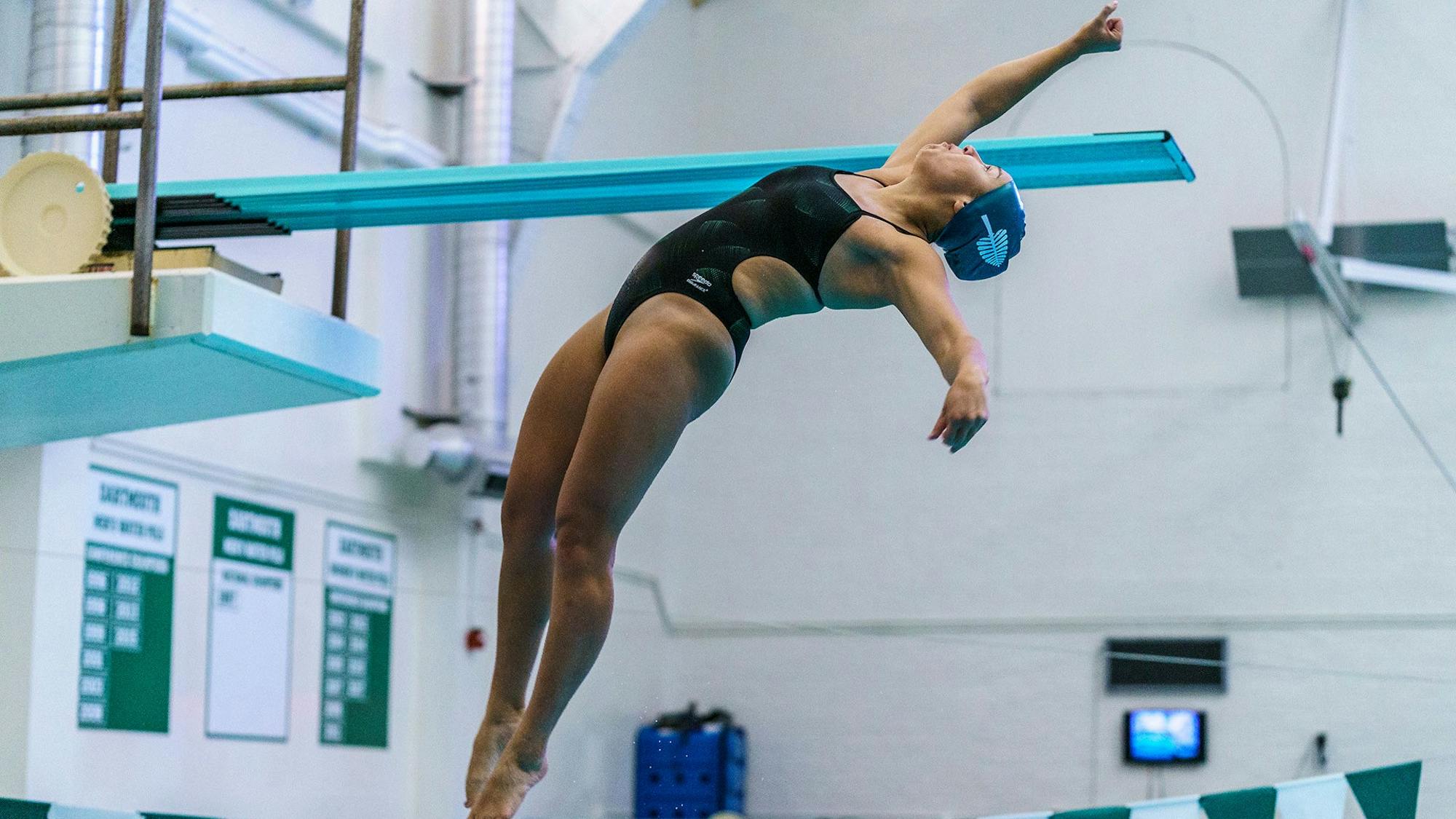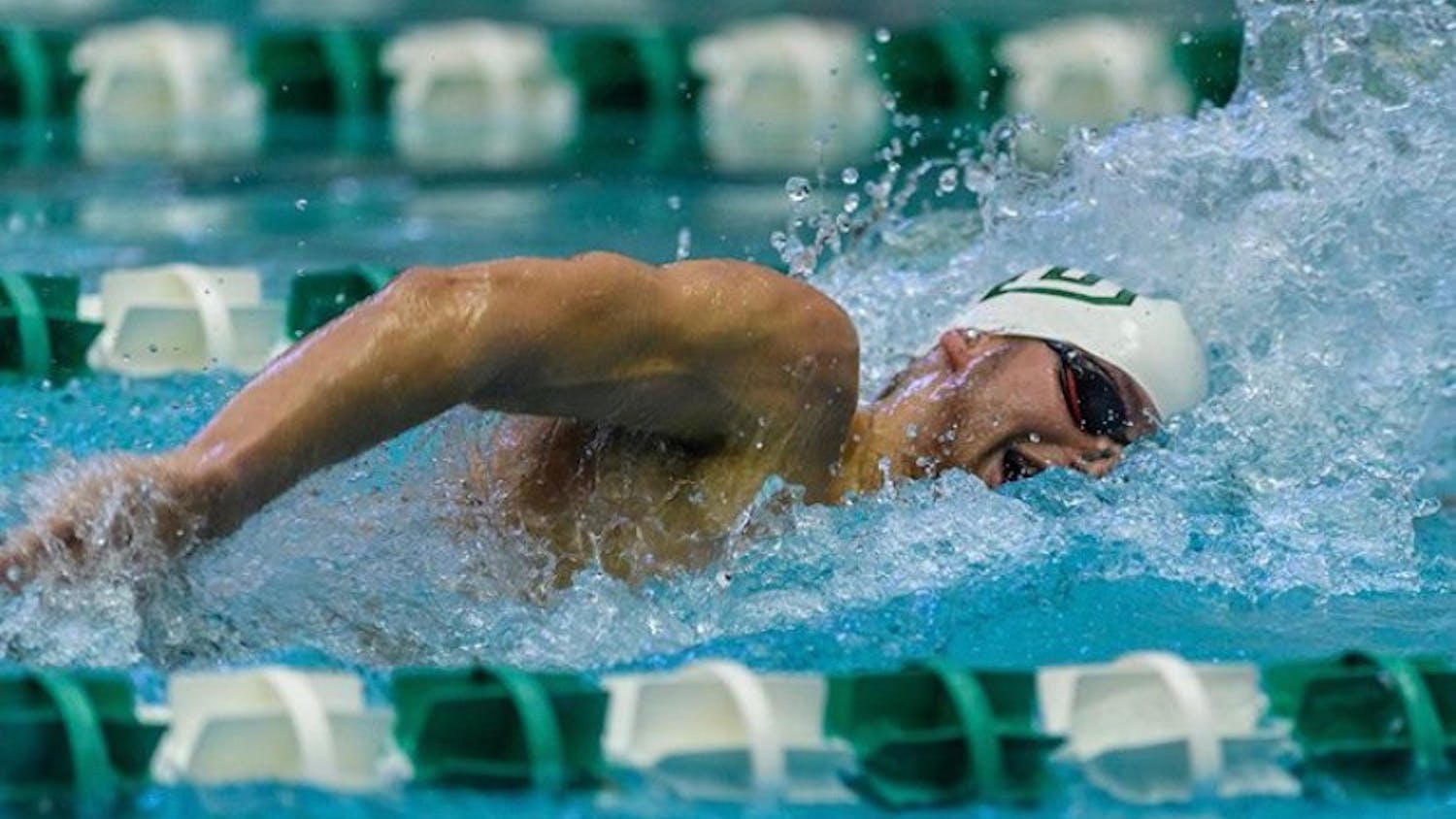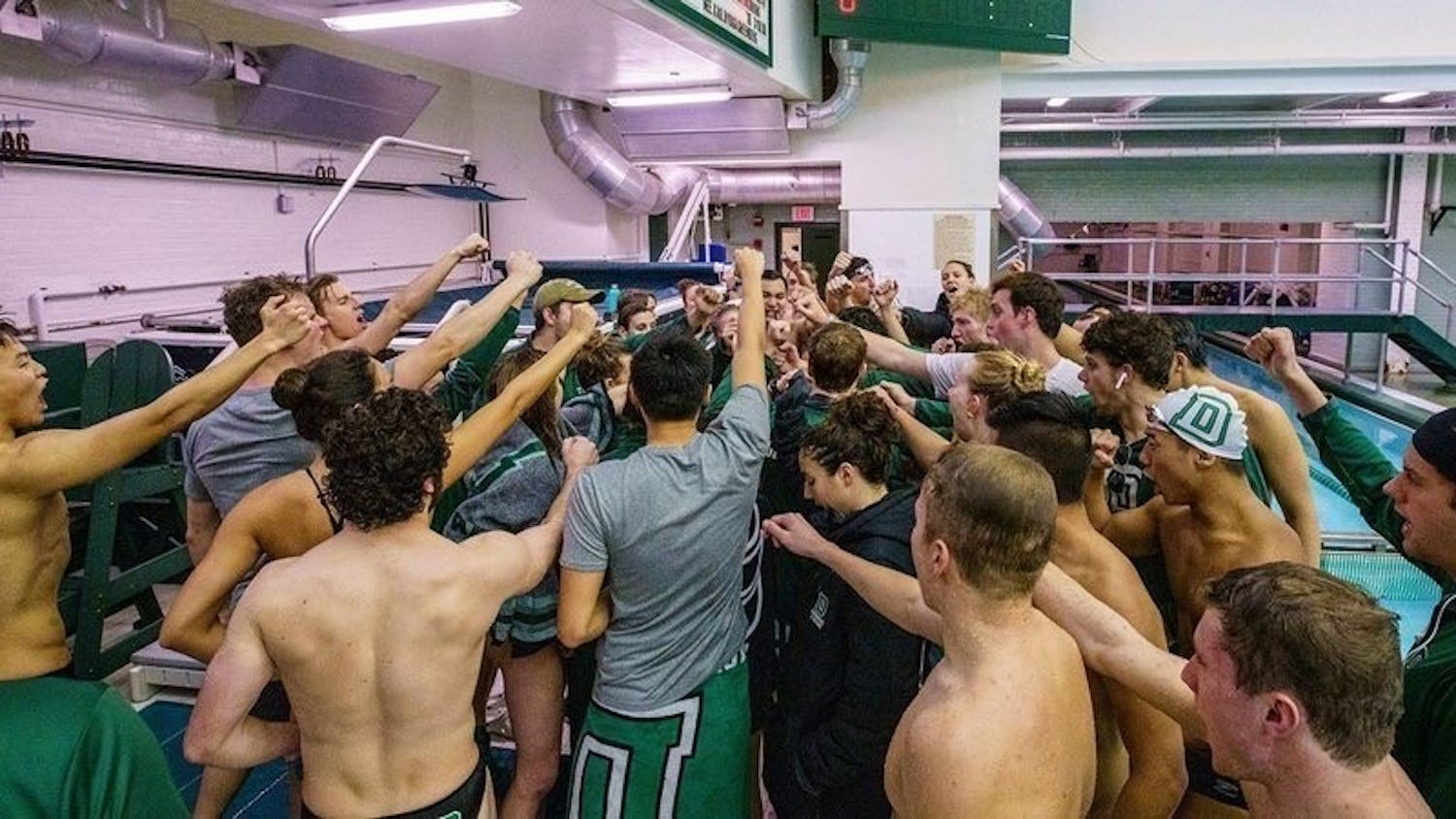The College’s reinstatement of five athletic teams, announced on Jan. 29, was the culmination of a two-month legal process that began in early December. Before settling with the College, 21 plaintiffs from the women’s golf and women’s swimming and diving teams alleged that the program eliminations violated Title IX.
The College’s settlement with the two teams stipulated that they be immediately reinstated and the College conduct a gender equity review to ensure compliance with Title IX by the 2023-24 academic year, with an initial compliance plan published no later than March 15, 2022. The settlement further ensured that the reinstated women’s teams would not be eliminated again through at least the 2024-25 academic year and required Dartmouth to pay over $100,000 to Bailey and Glasser, the firm representing the women in the case.
The women’s swimming and diving team initially pushed the Title IX allegations after first suspecting last summer that the elimination of the team might have violated Title IX, according to team co-captain Alie Hunter ’21, a plaintiff in the case. After unsuccessfully pursuing other reinstatement strategies, the team was approached by Champion Women, an advocacy group for women’s athletics, which informed the team that the College may have violated Title IX and offered to connect the team to a Title IX lawyer, according to Hunter.
Hunter said that in early December, the team approached Bailey and Glasser attorney Arthur Bryant, who had recently settled numerous Title IX cases across the country, including agreements with Brown University and the College of William and Mary to reinstate cut teams. Plaintiff and women’s golfer Kristen Chen ’22 said she and her teammates then joined the women’s swimming and diving team to add pressure to the case against the College.
Women’s swimmer and plaintiff Maggie Deppe-Walker ’21 said she had faith early on that the Title IX case could get the women’s teams reinstated.
“I was pretty confident from the early stages of the case because I felt that I trusted [Bryant], and I felt he knew what he was doing,” Deppe-Walker said. “I don't think that he would have taken our case on if he didn't think that we had a real chance of winning.”
Penelope Tir ’24, a women’s golfer and plaintiff in the case, said that Bryant and his team explained the legal process and Title IX to her and her teammates during the initial meetings, and he kept them updated throughout the process. Tir said Bryant’s legal team described “what it would mean to get involved.”
“The golf team was definitely more worried about professional repercussions in the future because as much as we all really love playing golf, we are equally devoted to our studies and careers,” Tir said.
On Dec. 18, 2020, Bryant sent a letter to Hanlon alleging that, based on the most recent public data on the Dartmouth athletics department website, the College had violated Title IX with the elimination of the two women’s teams. Bryant requested that Dartmouth provide him evidence to determine whether the official data confirmed compliance.
At the time of Bryant’s letter, Dartmouth had not published its Equity in Athletics Disclosure Act report for the 2019-20 academic year, so his firm reviewed the online rosters of Dartmouth varsity teams and compiled their own data. Senior associate athletics director for varsity sports Tiffani-Dawn Sykes later stated on a Zoom call with the reinstated teams that the online rosters differed from the data in the EADA compliance report because EADA numbers reflect rosters at the start of the season, while online rosters reflect whether students leave the team during their seasons.
Compliance with Title IX requires passing at least one element of a three-pronged test, according the NCAA website. The first is a test of substantial proportionality that requires participation opportunities for men and women to be roughly proportionate to the rate of undergraduate enrollment. The second element tests whether an institution has demonstrated “a history and continuing practice” of expanding opportunities for the underrepresented sex, while the third prong states that a school is compliant with Title IX if it has “fully and effectively” accommodated the interests of the underrepresented sex.
Bryant alleged that Dartmouth was not in compliance with the first prong of substantial proportionality, even before the cuts. Bryant claimed that Dartmouth rostered 521 men and 424 women prior to the cuts, creating a roughly 4% difference between the percentage of women in athletics and the percentage of women in the general student body, given that women made up about 49% of the student body during the 2019-2020 academic year. He maintained that after the cuts, with his data showing 456 men and 392 women rostered, Dartmouth athletic teams still consisted disproportionately of men — albeit at a slightly smaller gap of about 3%.
Thus, Bryant wrote in his December letter to Hanlon that he believed Dartmouth would have to add about 47 female athletes to reach the proportionality requirement.
However, the Dartmouth athletics department reported in its 2019-20 Equity in Athletics Disclosure Act Report, based on data from July 1, 2019 to June 30, 2020, that its athletic teams carried 474 men and 406 women prior to the cuts. This reflected a student-athlete composition of 46.1% women — about 3% lower than the proportion of women in the student body. The Dartmouth athletics department website shows that the College cut 63 male athletes and 34 female athletes, which would leave the athletics program with about 411 men and 372 women, increasing the proportion to 47.5% women. These numbers do not account for athletes on cut teams who joined other varsity teams, however.
Bryant further alleged that the College violated the second and third prongs by constricting athletic opportunities and accommodations for female athletes.
When the two sides met in early January, the College’s outside counsel expressed interest in settling, according to Bryant, and the settlement was finalized a couple weeks later.
College spokesperson Diana Lawrence previously declined to comment about the Title IX lawsuit and did not immediately respond to request for comment for this article.
Hunter said the swimming and diving teams met almost weekly since the cuts, with some members meeting multiple times a week, so she was happy to see their work pay off.
“It’s a really great feeling to finally be heard,” Hunter said. “Throughout the process, we requested so many meetings and talked to so many individuals on the board and the athletic committee and the administration, [so] it was really nice and empowering to finally hear a response from them.”




